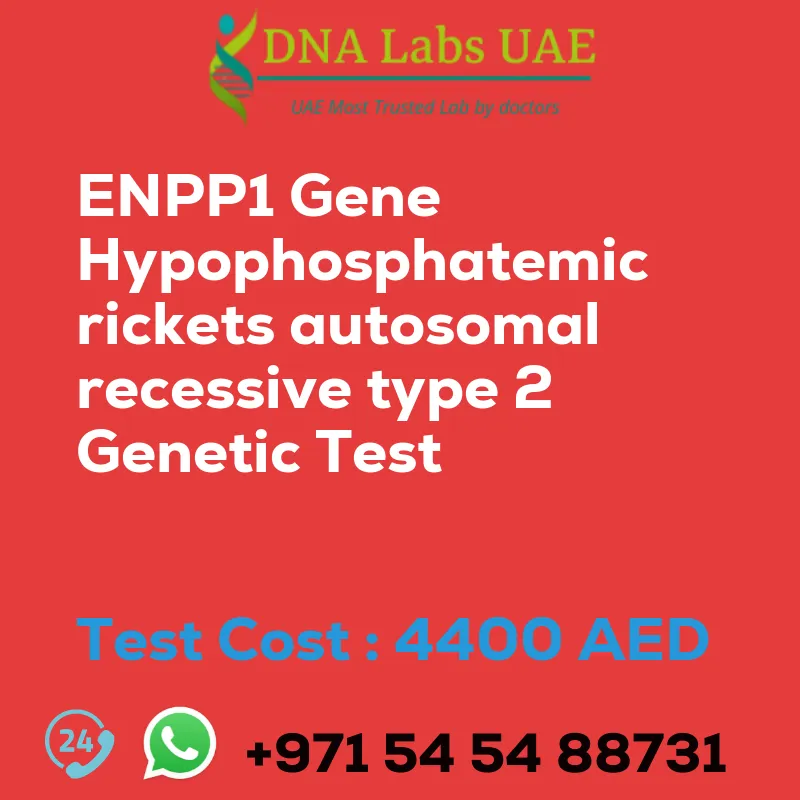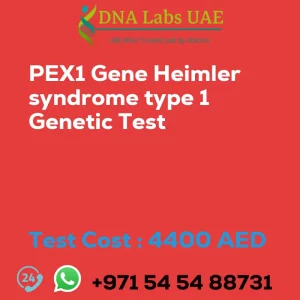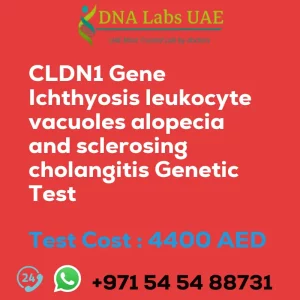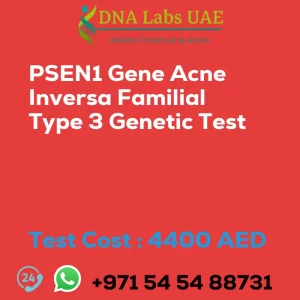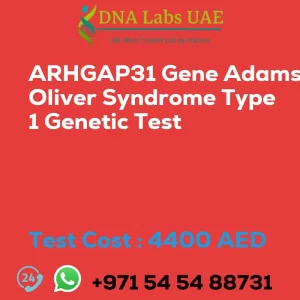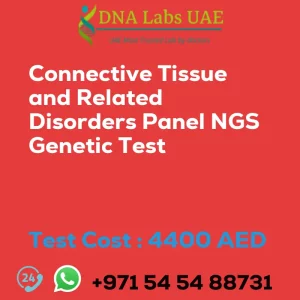ENPP1 Gene Hypophosphatemic Rickets Autosomal Recessive Type 2 Genetic Test
Test Name: ENPP1 Gene Hypophosphatemic Rickets Autosomal Recessive Type 2 Genetic Test
Components
- Price: 4400.0 AED
- Sample Condition: Blood or Extracted DNA or One drop Blood on FTA Card
- Report Delivery: 3 to 4 Weeks
- Method: NGS Technology
- Test type: Osteology Dermatology Immunology Disorders
- Doctor: Dermatologist
- Test Department: Genetics
Pre Test Information
Clinical History of Patient who is going for ENPP1 Gene Hypophosphatemic Rickets, Autosomal Recessive Type 2 NGS Genetic DNA Test. A Genetic Counselling session to draw a pedigree chart of family members affected with ENPP1 Gene Hypophosphatemic Rickets, Autosomal Recessive Type 2 NGS Genetic DNA Test gene ENPP1.
Test Details
The ENPP1 gene is associated with a condition called hypophosphatemic rickets, autosomal recessive type 2. This is a genetic disorder characterized by low levels of phosphate in the blood, which leads to impaired bone mineralization and skeletal abnormalities.
NGS (Next-Generation Sequencing) genetic testing is a type of genetic test that uses advanced sequencing technologies to analyze multiple genes simultaneously. In the case of hypophosphatemic rickets, autosomal recessive type 2, NGS genetic testing can be used to identify mutations or variants in the ENPP1 gene that may be responsible for the condition. By identifying these genetic changes, NGS testing can help confirm a diagnosis of hypophosphatemic rickets and provide information about the specific genetic cause.
This information can be useful for understanding the underlying mechanisms of the disease, predicting disease progression, and guiding treatment decisions. It’s important to note that NGS testing is a complex process that requires specialized equipment and expertise. It is typically performed in a clinical genetics laboratory by trained professionals. The results of the test are interpreted by geneticists or genetic counselors, who can provide further information and guidance based on the specific genetic findings.
| Test Name | ENPP1 Gene Hypophosphatemic rickets autosomal recessive type 2 Genetic Test |
|---|---|
| Components | |
| Price | 4400.0 AED |
| Sample Condition | Blood or Extracted DNA or One drop Blood on FTA Card |
| Report Delivery | 3 to 4 Weeks |
| Method | NGS Technology |
| Test type | Osteology Dermatology Immunology Disorders |
| Doctor | Dermatologist |
| Test Department: | Genetics |
| Pre Test Information | Clinical History of Patient who is going for ENPP1 Gene Hypophosphatemic rickets, autosomal recessive type 2 NGS Genetic DNA Test. A Genetic Counselling session to draw a pedigree chart of family members affected with ENPP1 Gene Hypophosphatemic rickets, autosomal recessive type 2 NGS Genetic DNA Test gene ENPP1 |
| Test Details |
The ENPP1 gene is associated with a condition called hypophosphatemic rickets, autosomal recessive type 2. This is a genetic disorder characterized by low levels of phosphate in the blood, which leads to impaired bone mineralization and skeletal abnormalities. NGS (Next-Generation Sequencing) genetic testing is a type of genetic test that uses advanced sequencing technologies to analyze multiple genes simultaneously. In the case of hypophosphatemic rickets, autosomal recessive type 2, NGS genetic testing can be used to identify mutations or variants in the ENPP1 gene that may be responsible for the condition. By identifying these genetic changes, NGS testing can help confirm a diagnosis of hypophosphatemic rickets and provide information about the specific genetic cause. This information can be useful for understanding the underlying mechanisms of the disease, predicting disease progression, and guiding treatment decisions. It’s important to note that NGS testing is a complex process that requires specialized equipment and expertise. It is typically performed in a clinical genetics laboratory by trained professionals. The results of the test are interpreted by geneticists or genetic counselors, who can provide further information and guidance based on the specific genetic findings. |

